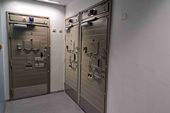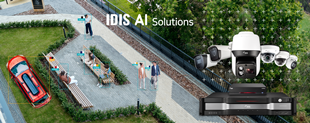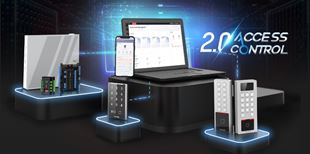For example, TBS biometric solutions can be seamlessly incorporated into healthcare settings including hospitals, clinics, pharmacies, and also within mobile health units. By deploying biometric identification systems, these facilities can guarantee that only authorised healthcare professionals and staff have access to sensitive areas and patient information. Biometric technologies such as face recognition, fingerprint scanners, or iris scanners can be employed for secure and efficient biometric identification and access control management.
Access control for enhanced security
Controlling access to restricted areas within healthcare facilities is essential for maintaining patient privacy and safety. Biometric systems provide a secure means of limiting access to sensitive zones such as medication storage areas or operating rooms. By restricting entry to authorised personnel only, healthcare organisations can mitigate the risk of unauthorised access and safeguard critical resources.
Secure communications
Biometric authentication facilitates secure communication and collaboration among healthcare professionals. Biometric authentication methods enable secure access to electronic medical records, confidential information exchange, and collaborative patient care discussions. With biometrics ensuring secure access, healthcare teams can collaborate effectively while upholding the highest standards of data security and privacy.
Workforce management
Integrating TBS biometric solutions can significantly improve workforce management and access control systems within healthcare facilities. By employing biometric technology, healthcare organisations can automate and streamline the process of tracking staff attendance, managing work schedules, and ensuring only authorised personnel access certain areas and sensitive information. This precision in managing staff access not only boosts operational efficiency but also contributes to a secure and compliant healthcare environment. The ability to quickly and accurately verify the identity of staff members reduces the risk of security breaches and ensures that personnel are in the right place at the right time, enhancing the overall quality of patient care. Furthermore, these systems can provide actionable insights into workforce patterns, enabling better resource allocation and planning. The adoption of TBS biometric solutions thus represents a significant step forward in achieving a more secure, efficient, and responsive healthcare service delivery system.
Here, TBS identifies some of the advantages brought by its biometrics solutions in the healthcare sector:
- Improved operational efficiency: Streamlined access control and communication processes save time and resources, leading to increased efficiency in healthcare delivery.
- Heightened security measures: Biometric authentication strengthens security protocols, protecting patient data and confidential information from unauthorized access or breaches.
- Enhanced workforce management: Biometric systems automate attendance tracking and work schedule management, improving staff accountability and efficiency.
- Facilitated collaboration: Secure communication channels foster collaboration among healthcare professionals, leading to better patient outcomes and coordinated care delivery.
- Robust access control system: Advanced biometric access control systems ensure that only authorised individuals can enter certain areas, such as medication storage rooms or patient records archives.
Fortified security measures
In conclusion, biometric solutions can play a pivotal role in fortifying security measures, ensuring accurate patient identification, and facilitating efficient communication within the healthcare and medical industries. By embracing biometric technology, healthcare organisations can uphold patient privacy, enhance operational effectiveness, and ultimately deliver higher standards of care to patients.
















